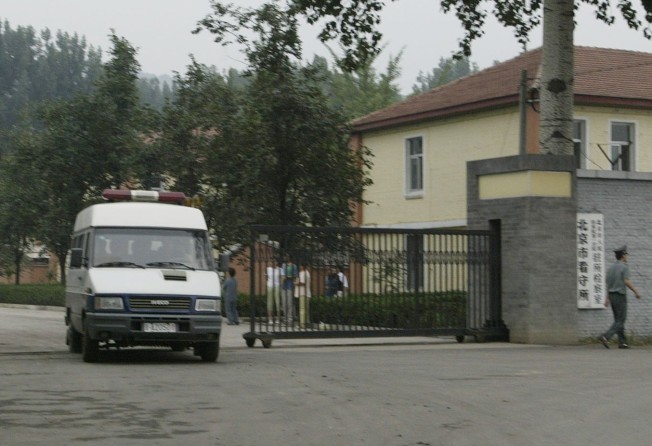Abuse of parole system targeted in corruption crackdown
Three types of criminals placed under stricter scrutiny in new move to strengthen regulation

The Communist Party's Central Politics and Law Commission yesterday issued a guideline to strengthen supervision and increase transparency in its parole system as part of Beijing's anti-corruption campaign.
"There have been problems over the past years in paroles and the reduction of penalties for criminals. Some criminals have used power or money to escape punishment, and this ... has damaged the credibility of the law enforcement and judicial organisations," Xinhua quoted the guideline as saying.
Beijing introduced paroles in 1990 to show compassion to repentant convicts or to check on their circumstances.
"Initially, the prisons could decide on paroles and the reduction of sentences. But the right to do so was returned to the courts after a revision of China's Criminal Law in 1996," Liu Renwen, a senior law researcher with the Chinese Academy of Social Sciences, said.
In practice, however, mainland courts simply do not have enough resources to review the individual parole cases, and as a result, continue to rely largely on the prisons for their initial reviews, Liu said. "The supervision of prisons is very weak and this inevitably leads to abuses of power," he added.
The media have reported many cases in which convicts were freed much sooner than they should have been. Some even walked free after sentencing in the name of medical parole.
In one high-profile case, Zhang Hai, former board chairman of beverage giant Jianlibao Group, used illegal means to have his sentence cut by five years in a court trial and his 15-year jail term further reduced by more than four years while he was serving the sentence. The case involved police and prison and court officials, Xinhua said.
The guideline listed three types of criminals and put them under stricter scrutiny for paroles and penalty reductions. "Criminals charged for taking advantage of duty, destroying financial management order and conducting financial fraud, as well as those in mafia organisations, are most likely to illegally get their penalties reduced," it stated.
"Such criminals are usually former officials or wealthy businessmen, who can use their social networks or wealth to escape punishment," Liu said.
In reviewing whether convicts had "truly repented" - crucial in granting paroles and cuts in sentence - the guideline required all courts to pay attention to whether convicts paid back the losses.
"Anyone who tried to use his personal influence and social connections to get parole or his penalty reduced would not be recognised as having truly repented," the guideline stated.
The guideline also ordered all decisions on paroles and penalty reductions to be published online for public supervision.